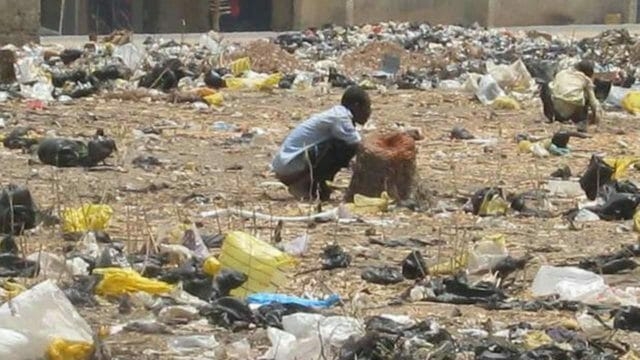The United Nations Children’s Fund (UNICEF) has said that 46 million Nigerians still practice open defecation as its rate in Nigeria had remained steady at 23 per cent.
Mr Peter Hawkins, UNICEF’s representative in Nigeria, said in a statement published on Friday to honour World Toilet Day, which is observed annually on November 19, that there had been minimal progress in the battle against open defecation in Nigeria during the previous two years.
He stressed that, “It is clear that more needs to be done to ensure that all Nigerians have access to safe toilets and that we shift closer to ending open defecation across the country.”
He noted that with the clean Nigeria campaign they were making strong efforts, stressing that the whole country needed to put their full weight behind the campaign.
He added that they cannot afford to fail, pointing out that ending open defecation was crucial to making progress in so many other areas, including health.
He listed that Kwara, Plateau, and Ebonyi, as the states that have the highest rates of open defecation, while Abia, Zamfara, and Akwa Ibom, have the lowest rates.
Hawkins, however, expressed delight that there had been some progress in ending open defecation, explaining that 71 out of Nigeria’s 774 local government areas have now been declared open defecation-free, up from 18 in 2019.
He stated that the states with the highest number of open defecation-free local government areas are: Katsina, Jigawa and Benue – with 21, 18 and 9, respectively.
Mr Peter Hawkins explained that Nigeria is making some progress in improving access to water, sanitation and hygiene ( WASH) services to its population, with 75 per cent of Nigerians having access to basic drinking water services – up from 70 per cent in 2019.
According to him, access to sanitation, that is, toilet and hand-washing facilities, has also increased modestly, from 44 per cent to 46 per cent over the same period.
Mr Hawkins recalled that President Muhammadu Buhari had, in November 2018, declared a state of emergency in the WASH sector and had also inaugurated a national campaign tagged, “Clean Nigeria: Use the Toilet” to jumpstart the country’s journey to becoming open defecation-free by 2025.
He expressed delight that there was a clear commitment by the government to help the population move away from the practice of open defecation, a move that would help support better health outcomes for all, especially children.










Discussion about this post